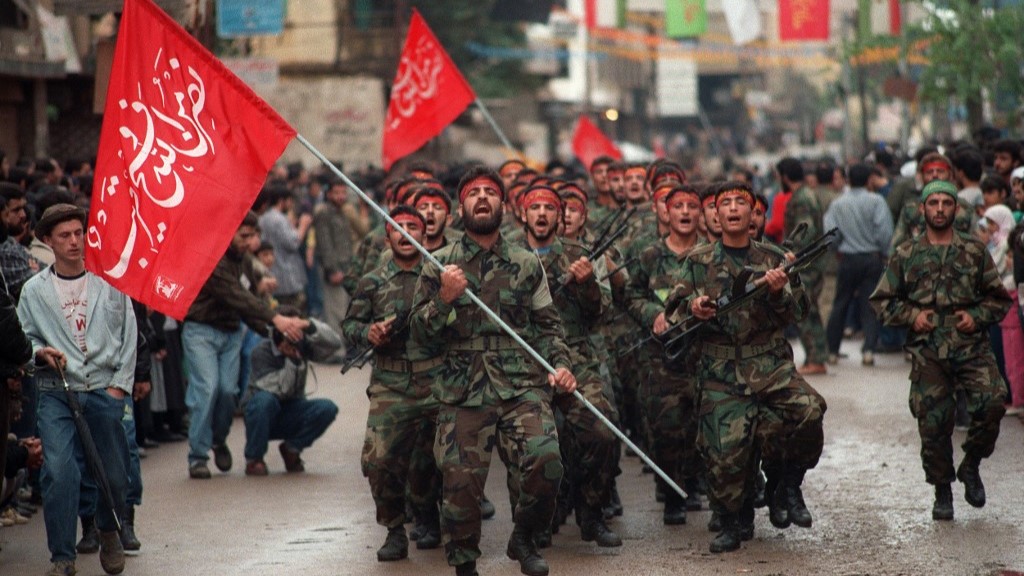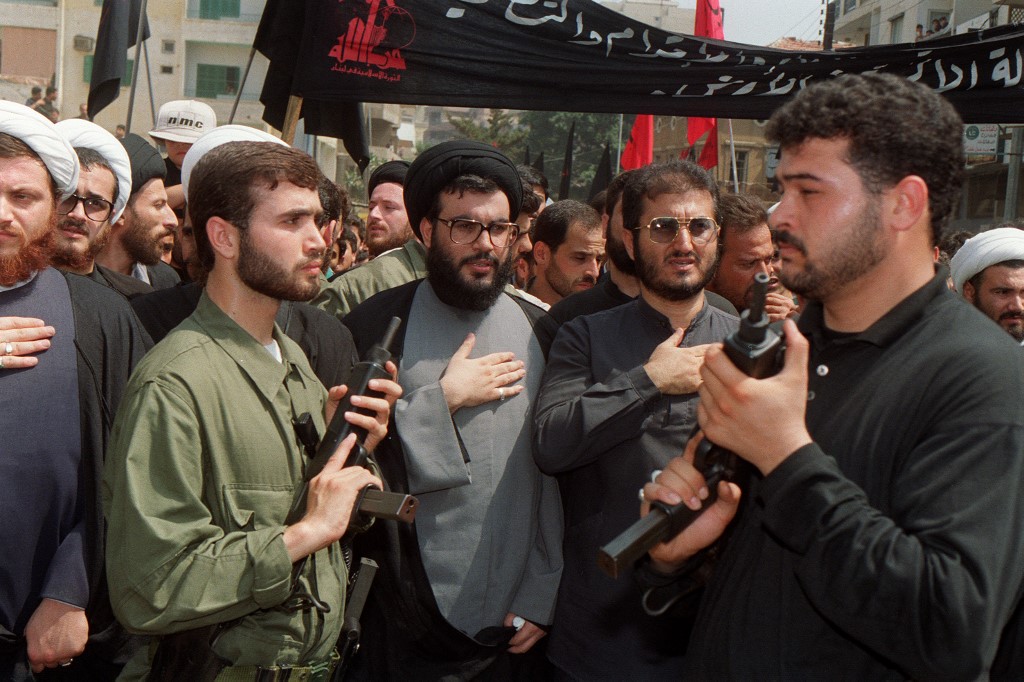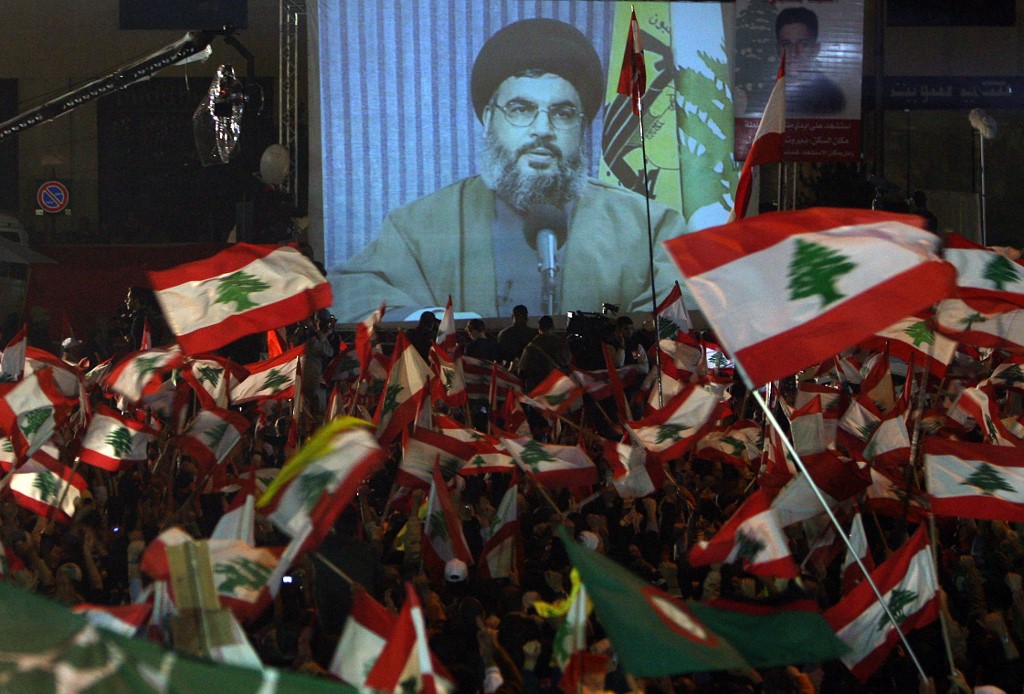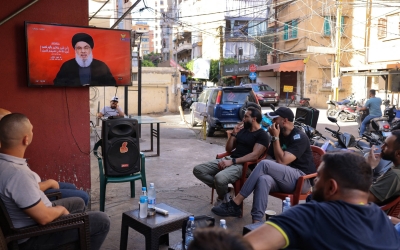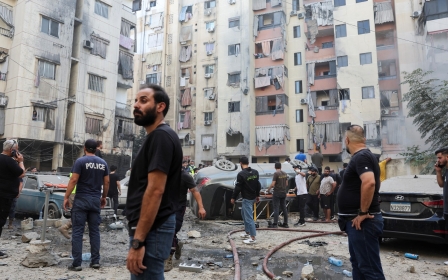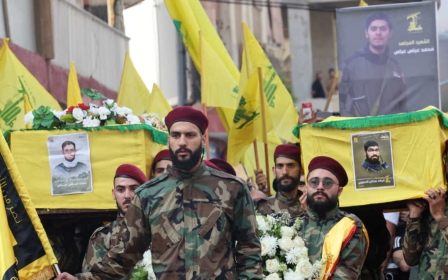Why did Israel's war with Hezbollah in 2006 matter so much?
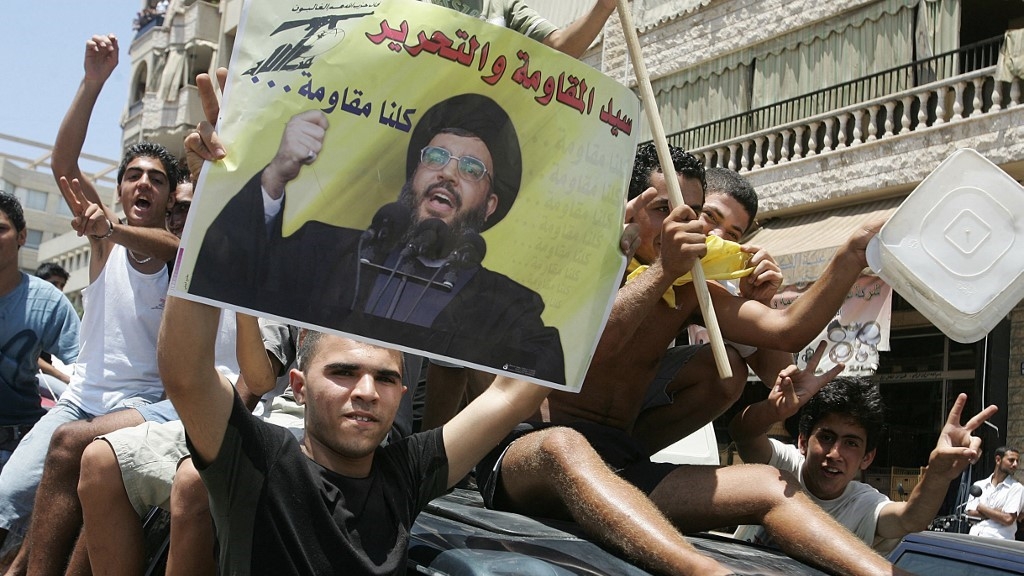
Lebanon, home to hundreds of thousands of Palestinian refugees, has been invaded by Israel repeatedly since its southern neighbour was established in 1948.
Now, after a week of bombardment which has killed more than 650 people, the Israeli government and military are suggesting that a ground invasion of Lebanon is imminent.
Hezbollah, which was formed during Israel's 18-year occupation of Lebanon's south from 1982 until 2000, has repeatedly fired rockets into northern Israel since October 2023 in solidarity with Palestinians being bombarded in the Gaza Strip.
During the past few weeks, Israel has stepped up its operations against Hezbollah and Lebanon, including the widely reported detonation of thousands of pagers and walkie-talkies used in the country on 17 and 18 September that left at least 42 dead and thousands injured.
On Wednesday, Israel's General Herzi Halevi told soldiers that Israel’s air strikes on Lebanon were being conducted “to prepare the ground for your possible entry”.
New MEE newsletter: Jerusalem Dispatch
Sign up to get the latest insights and analysis on Israel-Palestine, alongside Turkey Unpacked and other MEE newsletters
But Israel has not invaded Lebanon since summer 2006, when it was forced to pull back - the only time the state has been defeated by an Arab armed opposition.
Why does Israel keep invading Lebanon?
Since 1948, Lebanon has hosted Palestinian refugees who came to the country after being driven from their lands by Zionist militias in what came to be known as the Nakba ("catastrophe").
In the decades that followed, Palestinian nationalist groups organised in the refugee camps, intent on taking back their lands through armed struggle.
Their numbers were bolstered in 1970 when the Palestine Liberation Organisation (PLO), the main umbrella group representing Palestinian interests, relocated to Lebanon after being driven out of Jordan.
Throughout the late 20th century, Israel repeatedly launched aerial bombardments, ground invasions and surgical strikes on Lebanon to suppress Palestinian groups and their cross-border operations.
In 1982, Israel launched a full-scale invasion of Lebanon aimed at finally crushing the PLO, with allied Lebanese groups, and installing a government in Beirut friendly to Israel's interests.
The invasion killed as many as 20,000 people and much of Beirut and south Lebanon was levelled by Israeli bombardment.
What is Hezbollah and why does it oppose Israel?
Israel occupied the south of the country and installed a proxy security apparatus during the rest of the 1980s and 1990s.
But in 2000, after 18 years of occupation, Israel and its allies were largely driven out of the south by Hezbollah, a Shia Islamist group.
Hezbollah was officially established in 1985 by Lebanese Muslims sympathetic to the ideology of Ruhollah Khomenei, then supreme leader of Iran and figurehead of the Islamic Revolution.
In contrast to Amal, then the dominant political party in the often marginalised Lebanese Shia community, Hezbollah held an explicitly pan-Islamist worldview. It was also implacably opposed to Israel and its occupation of Lebanese territory.
With Iranian support the group developed into the largest non-state actor in the region, and was effectively better armed than the official army.
In 2006, former Israeli Prime Minister Ehud Barak admitted that Hezbollah came into being as a direct result of Israel's invasion and occupation of Lebanon.
"When we entered Lebanon… there was no Hezbollah," he said. "We were accepted with perfumed rice and flowers by the Shia in the south. It was our presence there that created Hezbollah."
Why are Israel and Hezbollah still in conflict?
Hezbollah has long maintained its opposition to the existence of the Israeli state and, echoing its principal backer Iran, has supported Palestinian efforts to liberate the territory and return to their homelands.
But a more direct issue since 2000 has been Israel's continued occupation of the Shebaa Farms region.
Ownership of the 22 sq km territory to the north of the Golan Heights has been disputed by Lebanon and Syria since the end of the French mandate in the 1940s.
After Israel withdrew from Lebanon in 2000, it stayed in Shebaa Farms, saying that it was Syrian territory and so not covered by the withdrawal agreement.
Hezbollah continued to launch attacks on Israel following 2000 with the expressed objective of liberating the Shebaa Farms.
What sparked the Israel-Hezbollah war of 2006?
Between 2000 and 2006, Hezbollah and Israel launched repeated tit-for-tat operations against one another. But the period - referred to by some as the Shebaa Farms conflict - was largely low-level.
It changed on 12 July 2006, when Hezbollah launched a rocket attack on an Israeli Jeep patrolling the border. Three IDF soldiers were killed and two captured and taken back to Lebanon.
In exchange for the captives, Hezbollah demanded the release of Lebanese prisoners held by Israel since the 2000 withdrawal. Israel refused.
Following a failed cross-border rescue attempt, Israel launched a full-scale ground invasion on 17 July of the territory it had evacuated only six years earlier.
Despite later saying Israel was only interested in targeting Hezbollah, Prime Minister Ehud Olmert said the kidnapping of the soldiers was an act of war by Lebanon itself - despite Lebanese Prime Minister Fouad Siniora saying he had no knowledge of the operation.
"I want to make clear that the event this morning is not a terror act, but an act of a sovereign state that attacked Israel without reason," Olmert said.
"The government of Lebanon, of which Hezbollah is a part, is trying to shake the stability of the region."
Nasrallah would later claim that, had he known how fiercely Israel would respond, he would "absolutely not" have captured the two soldiers.
How did Israel's invasion of 2006 start?
During the first days of its operation, Israel launched air strikes across southern Lebanon and the capital Beirut, claiming it were targeting Hezbollah infrastructure and "strongholds" of the group.
One stated aim was to destroy the group's capacity to launch rockets into Israel, including medium-range Fajr and extended-range Katyusha rockets.
On 12 July, before the ground invasion was even launched, Israel's attacks on Hezbollah's rocket capabilities led Lieutenant-General Dan Halutz, Israel's army chief of staff, to enthusiastically declare to Olmert that they had "won the war".
His optimism was short-lived. The aerial campaign's success in degrading Hezbollah's capabilities was greeted with deep scepticism in many quarters, and the group continued to fire missiles into northern Israel, eventually killing 157 people by the war's end.
The ground operation would officially commence on 17 July.
Israeli ground forces, including the elite Maglan unit, quickly came to blows with Hezbollah in the southern village of Maroun al-Ras.
From the start, Hezbollah fought much more fiercely than the Israelis had expected. “We expected a tent and three Kalashnikovs - that was the intelligence we were given," said one Maglan soldier, speaking to the Sunday Times.
"Instead, we found a hydraulic steel door leading to a well-equipped network of tunnels."
What did Hezbollah do against Israel?
In 2006, both Israel and many international observers had failed to account for how prepared and professionalised Hezbollah had become.
The resistance Israel faced in Maroun al-Ras pushed Olmert to call up Israeli army reserves on 21 July, apparently to the surprise of military commanders.
In contrast, the Hezbollah force south of the strategically imporant Litani river (around 30km north of Israel) consisted of around 3,000 fighters and was never forced to call up reserves.
An Israeli operation to take the southern town of Bint Jbeil - where Nasrallah publicly declared Israel's defeat in 2000 - also failed.
Instead its soldiers were ambushed by a "withering array of Hezbollah small arms, machine guns, rocket-propelled grenades, antitank missiles, mortars, and short-range rockets".
For all Israel's legendary military prowess, it never managed to take the town. Hezbollah's media outlets boasted of its victories against Israel.
The group's use of anti-tank weaponry at the Battle of Wadi al-Hujair on 11 August saw them halt the advance of a line of Merkava tanks, destroying two of them in the southern district.
Meanwhile, Hezbollah launched 3,970 Hezbollah rockets during the war, 901 of them hitting inside Israeli cities and, despite Israel's efforts, the bombardment never ended.
How did the 2006 war end?
By 5 August, the Israeli army had approximately 10,000 soldiers in southern Lebanon - but had advanced no further than four miles since 17 July.
Anger had begun to mount internationally over the war. Inside Israel calls mounted for Olmert's resignation.
UN Secretary-General Kofi Annan criticised Israel for the “apparently deliberate targeting” of a United Nations observer post in southern Lebanon which killed four UN observers. Olmert claimed it was a mistake.
On 11 August 2006, the UN Security Council adopted Resolution 1701 calling for a “full cessation of hostilities based upon, in particular, the immediate cessation by Hezbollah of all attacks and the immediate cessation by Israel of all offensive military operations, and emphasising the need to address urgently the causes that have given rise to the current crisis, including by the unconditional release of the abducted Israeli soldiers.”
Both Israel and Hezbollah agreed to a ceasefire. It took effect on 14 August 2006.
How much damage was done to Israel and Lebanon?
Despite Hezbollah's claims of victory, Israel's assault caused enormous damage to Lebanon, including a large loss of life.
Figures compiled by the Associated Press said 1,181 Lebanese were killed in total, around a third of them children and the majority civilians. A further 4,051 Lebanese were wounded. An estimated 916,000 people were displaced.
More than 15,000 homes had been destroyed, along with 900 commercial structures, including farms and factories. Overall damage was estimated at $9.4bn.
On the Israeli side, the death toll stood at 157, mostly soldiers. Around 300,000 people were displaced from their homes in the north of the country.
The UN Human Rights Council, meeting in special session on 11 August, adopted a resolution condemning Israeli violations of human rights and of international humanitarian law and calling for the establishment of a commission of inquiry.
Who won in 2006, Hezbollah or Israel?
Both sides in the conflict claimed they had won the war. But critics of each claimed they lost.
An Israeli government commission led by retired judge Eliyahu Winograd declared in 2008 that the war had been "a big and serious failure" for Israel.
"The ground operation did not achieve its objectives," he said, and criticised Israel for entering Lebanon without an exit strategy.
"This offensive did not result in military gains and was not completed."
Nasrallah would declare at a rally in September 2006 that Hezbollah had achieved a "divine and strategic victory".
Some in Lebanon, however, would continue to criticise the group for - in their view - embroiling the country in a brutal war through unilateral actions.
The growing power and popularity of Hezbollah as a "state-within-a-state" was also viewed as helping cement the influence of Iran and Syria, the latter of whom had only ended their own occupation of the north the previous year.
What was the legacy of the Israel-Hezbollah 2006 war?
The 2006 war had an enormous impact on Hezbollah's status around the Arab world.
At a time when the Shia-Sunni sectarian violence was tearing apart post-Saddam Iraq, Hezbollah's ability to push back against Israel saw it feted across religious lines.
But it wouldn't last.
Hezbollah's decision to lend its firepower to President Bashar al-Assad in Syria in 2011 as he fought mainly Sunni rebels and crushed pro-democracy activists cost the group goodwill among many Sunni Muslims.
Hamas, their erstwhile allies in Gaza, also threw their support behind the 2011 uprising against Assad, straining relations between the two groups.
But the start of Israel's war on Gaza in October 2023, during which more than 41,000 Palestinians have been killed, has galvanised much of the Middle East with widespread fury.
In Lebanon, at least 589 people have been killed in Israeli strikes across the border even before this week's attacks. In Israel at least 34 people have been killed by Hezbollah rocket fire.
Hundreds of thousands have been displaced on both sides.
If Israel invades Lebanon, will it be a repeat of 2006?
Although Hezbollah has proclaimed itself ready for another war with Israel, there is scepticism as to whether it can achieve the surprise that it did in 2006.
Some say that the element of surprise that existed in 2006 is now absent.
Mohanad Hage Ali, deputy director for research at the Carnegie Middle East Center, told MEE: "There's much bigger Israeli capability technologically and in terms of infiltrating Hezbollah than we have seen in 2006 - so the organisation's morale is much lower than in 2006."
He said that the group had been hit hard by intelligence problems, particularly over surprise attacks such as the pager and walkie-talkie explosions, and the targeting of senior Hezbollah commanders.
"So I'm not sure in terms of comparing 2006 to today - I think it would be to Hezbollah's disadvantage, unless there are surprises. But judging by the past year we haven't seen anything and the assumption is that the organisation doesn't have much to showcase."
Middle East Eye delivers independent and unrivalled coverage and analysis of the Middle East, North Africa and beyond. To learn more about republishing this content and the associated fees, please fill out this form. More about MEE can be found here.


